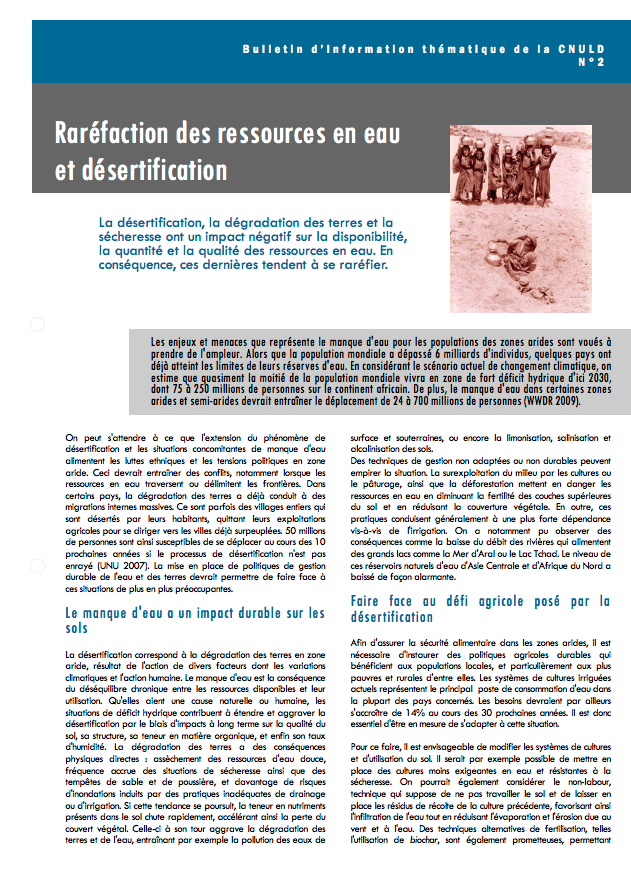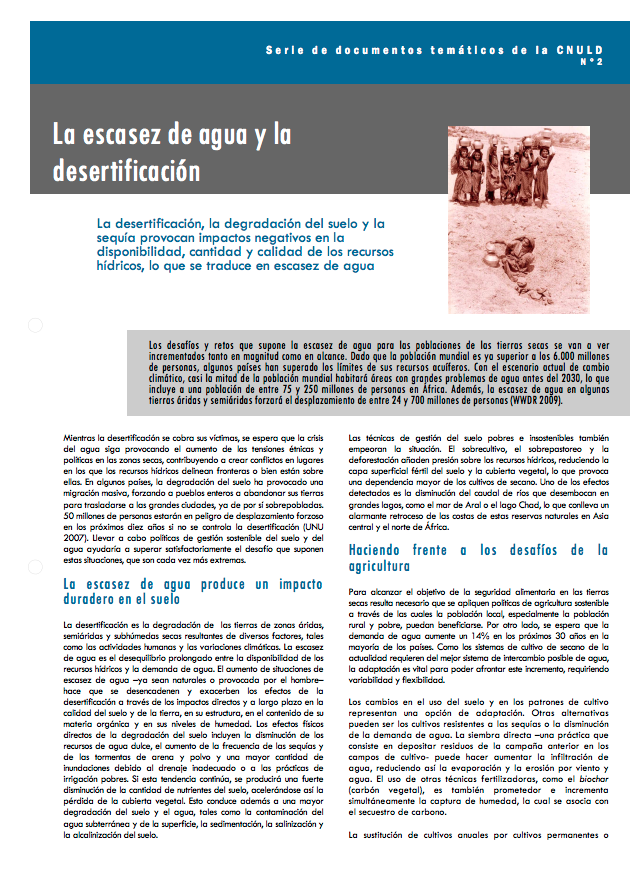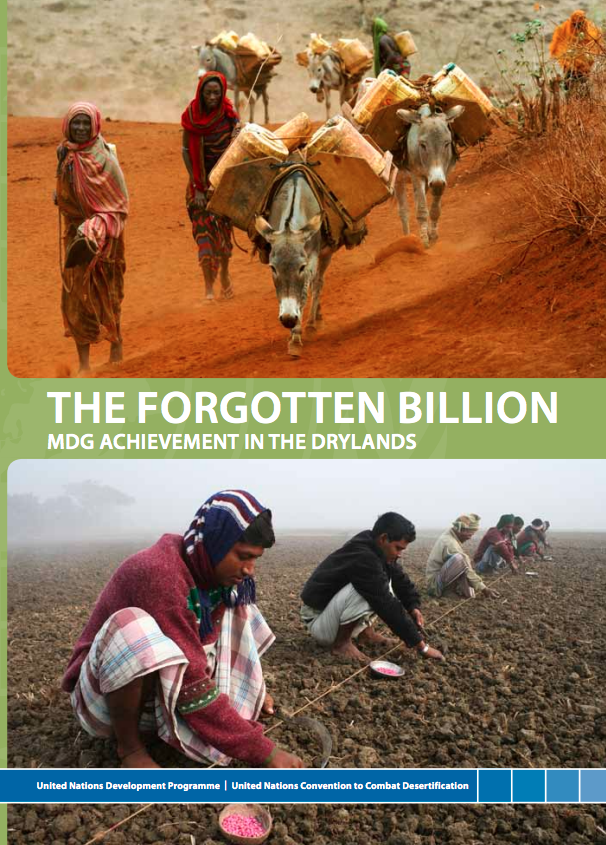Raréfaction des ressources en eau et désertification
Les enjeux et menaces que représente le manque d'eau pour les populations des zones arides sont voués à prendre de l'ampleur. Alors que la population mondiale a dépassé 6 milliards d'individus, quelques pays ont déjà atteint les limites de leurs réserves d'eau. En considérant le scénario actuel de changement climatique, on estime que quasiment la moitié de la population mondiale vivra en zone de fort déficit hydrique d'ici 2030, dont 75 à 250 millions de personnes sur le continent africain.




